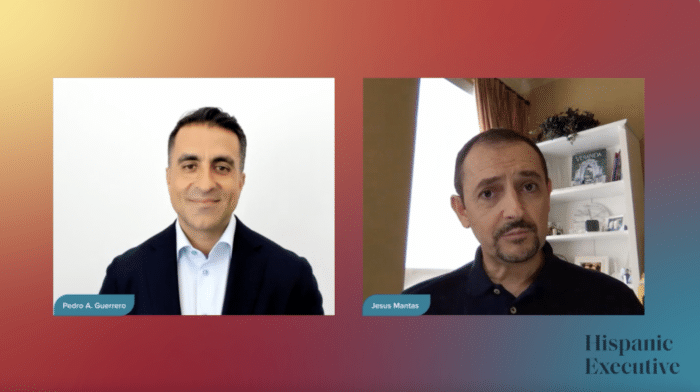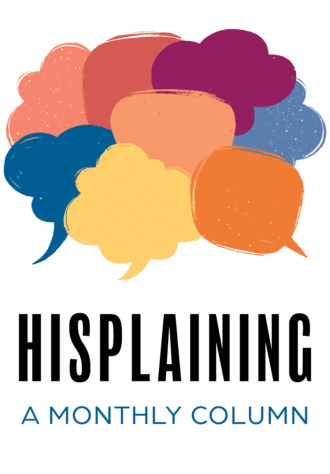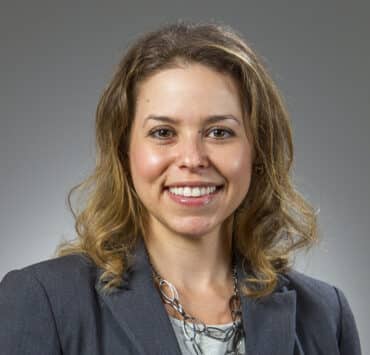|
Getting your Trinity Audio player ready...
|
Hispanic Executive’s third Latino ERG Digital Summit of 2021 took place on August 12, and attendees were left with plenty of food for thought on ways to enhance their companies’ Latino ERGs.
The event was held in partnership with the Consortium of Latino Employee Organizations (CLEO) and made possible by the following Hispanic Executive partner organizations: Bank of America, BNY Mellon, Capital One, Goldman Sachs, Liberty Mutual, Nike, and T-Mobile.
T-Mobile Senior Director of Diversity, Equity, and Inclusion Ester Julia Neznanova and Director of Global Care Operations and Cochair of T-Mobile’s Magenta LatinX Network Juan Longoria shared an overview of their organization’s Latino ERG. DRR Advisors President Dr. Robert Rodriguez talked about intersectionality and increasing visibility by leaning into all dimensions of our identity.

Finally, in a conversation with Hispanic Executive Publisher Pedro A. Guerrero, keynote speaker and IBM Senior Managing Partner of Strategy, Innovation, and Corporate Development Jesus Mantas discussed the opportunities for positive change in Hispanic education, workforce and leadership, personal and professional perseverance, and more.
Here are our top three key takeaways from the keynote conversation:
A Responsibility to Close the Gap
In a February 2021 interview with Hispanic Executive, Mantas emphasized the urgent need for Latinos everywhere to help “close the Hispanic education, workforce, and leadership gaps, not just for the benefit of Hispanics but for the benefit of the entire US society.”
In his keynote address, Mantas expanded on this subject. He noted that Latinos are 18.5 percent of the population and will be 20 percent of the population by the end of the decade. Latinos, he pointed out, are also the largest minority and the only minority that is growing, as well as the youngest minority, with six out of ten Hispanics being less than thirty-five years old. Despite all of this, Hispanics only make up approximately four percent of the executive ranks.
“So that is a significant imbalance that we need to correct,” Mantas said. “But this is not only a Hispanic problem for Hispanics—this is a US economics and . . . labor force challenge. Think about that right now. We have five million jobs open in the United States, and there’s no other demographic that can create enough people that can be qualified for those jobs.”
The Importance of Mentoring
Mantas is extremely passionate about mentoring and would do it all day if he could. Without mentorship, he remarked, one can end up in a closed loop, unaware of the possibilities in the world and limited in what one knows. Mentorship is key to helping young professionals open their eyes to their own potential as well as to that within their fields.
“It doesn’t matter what your economic background is or where you were born,” Mantas said. “It doesn’t matter what the ZIP code that you live in is. If you have potential and you’re going to work hard, somebody can orient you as to what the possibilities could be.”
Mantas makes sure to block off time on a regular basis to devote to mentoring, which he says is some of the most rewarding time of his week. This ensures he does something he loves but doesn’t neglect other important professional and personal matters.
“That’s how I manage capacity as well,” he said. “I would love to spend one hundred hours on mentoring, but I can’t. I have to do other things.”
Conquer the Backhand
Like so many inmigrantes, Mantas struggled with learning English. It was especially difficult when he first came to the US: just three weeks after arriving, he was told he’d made a mistake and should go back to Spain.
This experience, plus his own desire to succeed, motivated Mantas to learn English. It was very, very difficult, he noted, but Mantas was used to overcoming challenges: an avid tennis player, Mantas always had a decent forehand but a horrible backhand. English was his backhand, he said, and he was determined to improve it.
Three years later, after much experience (which included a teaching stint at UC Irvine), Mantas was more proficient in English as well as a more confident public speaker. Today, he sees tackling new challenges as crucial to one’s personal and professional growth.
“You have to have that resilience: it’s very humbling, when you’re half good at something, to take a step back and be bad again,” he said. “But it’s the only way you develop new muscles.”


